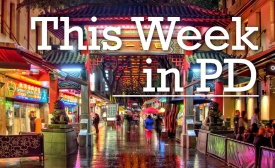china
China’s actions in recent months have elicited growing concerns, not just from the US and Australia, but increasingly from across ASEAN. Singapore’s leaders have expressed disquiet about the deteriorating situation. Even Malaysia, which has historically preferred “quiet diplomacy” and been reluctant to criticise Chinese actions...
The application of power in international affairs has raised an endless debate among those who are in favor of the direct military use of power and those who are in support of diplomacy. This indirect use of power is what Joseph Ney calls soft power...
ABC management has issued a strongly-worded statement refuting accusations of pro-government censorship [...] “The ABC has not, and never has, entered into an agreement with China or any country in regards to censorship of its content,” the ABC said in a strongly-worded statement.

Headlines pivoted east in this news roundup with stories on China, Korea and Singapore.
In the modern era new tools have emerged that are used by superpowers. In Libya, Syria and Ukraine there is extensive use of hard power by non-state actors supported by these powers. In other countries intervention is made through soft power using social media and leaks. WikiLeaks and Panama Papers are part of this cyber war fare employed by non-state actors. In both these leaks there seems to be a particular pattern targeting select countries to put public pressure on governments.
Pending government approval, a group of 35 doctors and nurses based in Shanghai will soon become the nation’s first medical team to join the World Health Organization’s emergency response system, specializing in disaster relief. [...] Beijing has since maintained its medical assistance to Africa ever since, renewing its commitment last year to send 1,500 medical professionals to the continent.
A new survey conducted by the Committee of 100 (C-100) – a non-profit organization of prominent Chinese American leaders from politics, business, media and entertainment, and academia [...] The aim of C-100's survey is to determine American attitudes toward China, including those of Chinese Americans, to foster a more fact-based dialogue within and between the two countries.
China's economic growth has begun to flatten out, so it has sought to evolve from manufacturing to service. And professional soccer [...] is a service. In a country newly rich and besotted by Western luxury goods, the sport has become a paradigm of sorts for embracing and importing foreign commodities. Only in this case, those commodities aren't yachts or Ivy League educations, but rather soccer players.







